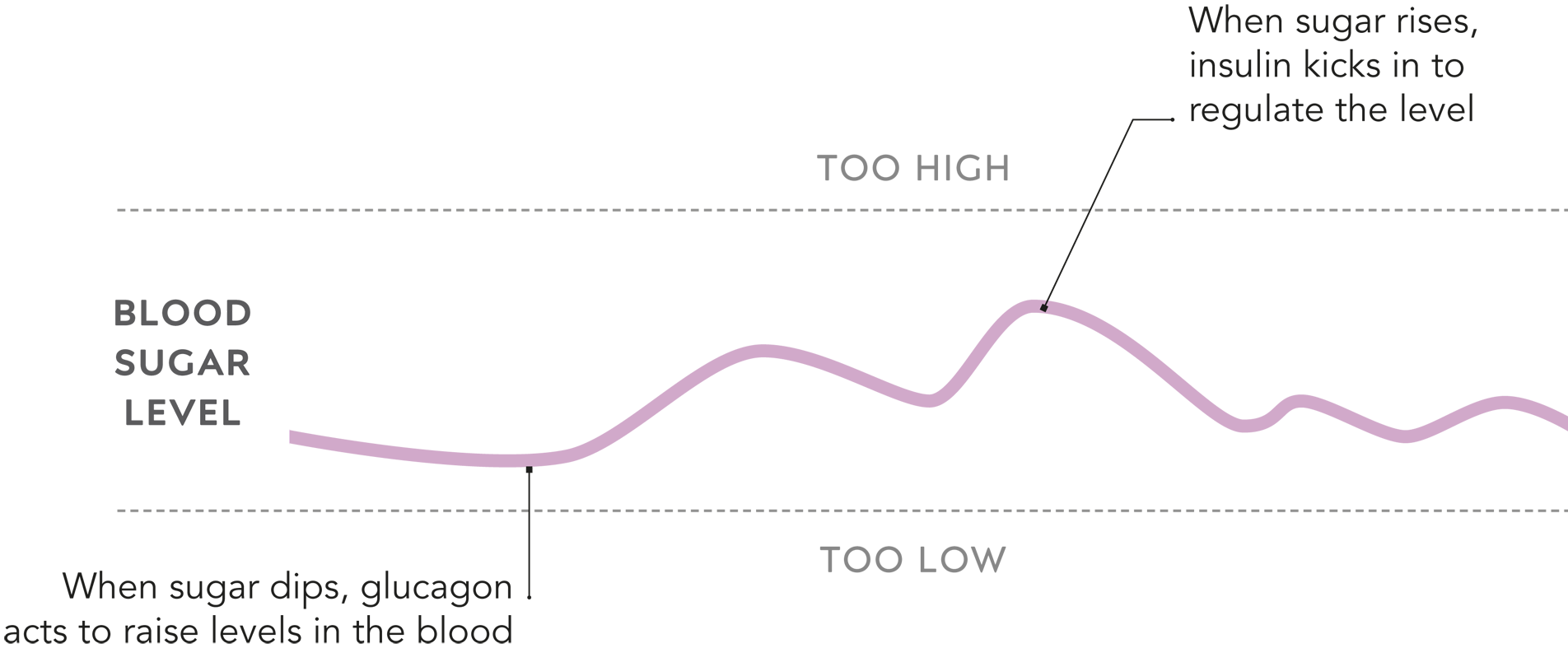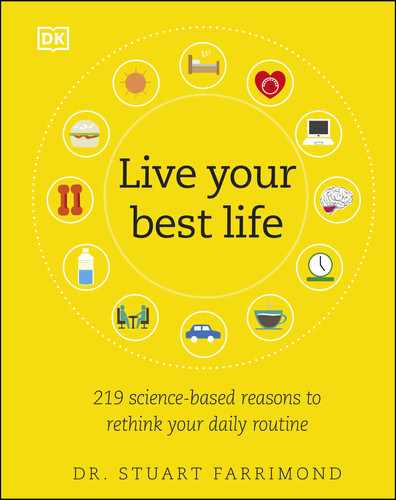How Can I Avoid a Sugar Crash?
Many people fear that three hours without food risks running the gauntlet of suffering low blood sugar. But for most adults, the “sugar crash” is a fairy tale.
The “sugar crash” is a modern idea: in the mid-20th century, three meals a day was considered ideal, but in modern times, the idea has taken hold that we need to top up regularly to avoid slumps in energy. This snack culture is promoted, too, by corporate-sponsored research that suggests eating (and buying) snacks will boost performance.
You don’t have to worry about crashing or your energy plummeting—unless you’re diabetic or exercising hard for an hour or more, blood sugar rarely falls to levels that you can feel because your body takes care of it for you. The pancreas produces two useful hormones—glucagon and insulin—that dial down or push up sugar levels according to your body’s needs. When they’re creeping up, insulin pushes excess sugar into energy stores, first filling up short-term caches in our muscles and liver, then stowing the rest as fat. When sugar is low, glucagon drags sugar back out of these stores to keep your energy lines well supplied. Your body is amazingly good at regulating sugar and keeping energy levels balanced.

n Double-tap image to read the labels
The sugar police
In most people, insulin and glucagon act as buffers for your blood sugar level, reacting to your food intake and energy output to keep levels within optimum limits.
